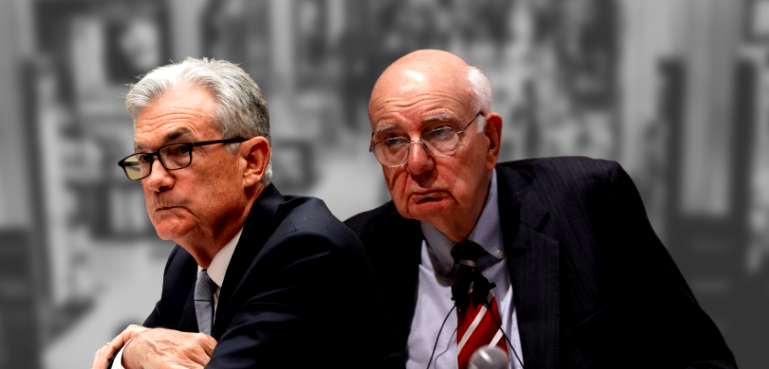
I believe we now all agree the #inflation genie, or perhaps “devil,” is back with a vengeance. Who could have foreseen that? Well… I did 3 months ago ( “The Real Fight Against #Inlfation Has Not Even Started Yet” ), but most people were too busy getting drunk on the fresh Kool-Aid delivered non-stop by the shameless Jerome Powell, Janet Yellen, Christine Lagarde, and Co.
Think about that, several months ago, the #stocks breakneck rally was fueled by dreams the #FED would have delivered SIX Fed Fund rate cuts in 2024, what a show of idiocy for lack of better words. Throw on that fire incessant (fake) #AI narrative gasoline, a derivative market now completely out of control, and governments that forgot they had to fund their spending, and what we are facing today is the monster of all risks. What’s that? #Inflation running wild while economies are one by one falling into recession.
The “guru” economists still downplay the risk, talking about “stagflation” while they constantly fail to acknowledge the data they create their thoughts on are based on #CPI data that since the 70s have been “politically adjusted” so much, beyond the wildest dreams of Arthur Burns, that the reality they describe is completely fictional.
In a few hours, the #BOJ, after dragging its feet for an unbelievably long stretch of time, is going to be the last major central bank to deliver a rate hike. However, no one is taking them seriously at all, and the #Nikkei marked the event by rallying 2.5% ahead of it after another set of dismal #Japan industrial data hit the tape. It would have been very similar for US #stocks, which started the first trading day of the week gapping higher as if there was no tomorrow led by $NVDA up almost 5% at some point, but it looks like in the second half of the trading session towards the close, traders (and their beloved algorithms) remembered it was appropriate to exercise some caution ahead of the #BOJ.
Restoring the #FED credibility was what Paul Volcker had to address to truly restore healthy monetary policy dynamics when he became #FED chairman. Now people put him on a pedestal and hope for his reincarnation, but no one remembers the degree of shaming and resistance he faced decades ago when he was working hard to fight a badly sick economy. What people forgot as well is his contribution in crafting the famous “Volcker Rule” after the 2008 Global Financial Crisis, a rule that through the years has been significantly watered down by banks lobbying because banks couldn’t deliver fat profits if they truly applied that as it was intended.
What is the “Volcker Rule”? In a nutshell, the rule prohibited banks from making speculative investments (aka Proprietary Trading) with reckless use of their capital and their customer funds. It took years after it was finalized in 2010 till 2015 for it to be implemented after all kinds of lobbying against it, by then of course banks already had a “workaround” in place. What is that? Banks started to label as “hedging” every asset or derivative held in their book that wasn’t truly linked to hedging the risk of a genuine (and legal) customer-related transaction, and they could do that because they aren’t required to pinpoint what specific risk related to a specific trade the hedging is for. Volcker rule boundaries have been ultimately stretched beyond limits under the excuse banks hedge their risk on an aggregated portfolio basis. One of the most blatant examples out there? Morgan Stanley (last analysis here).
We often forget that central banks are supposed to be in charge of the industry supervision as regulators, a duty that banks’ bankruptcies last year demonstrated they are now incapable of exercising effectively, maybe because they become too “cozy” with the banks (and their speaking fees ready on a silver plate as soon as regulators are not officially in charge anymore).
Until a new real “Paul Volker” surfaces, I fear there are no chances we will see any positive change in the system and in the economy because the central bankers currently in charge clearly do not have what Paul Volker had “to do the right thing”, both to fight #inflation and as supervisors of the banking system, going against interests of politicians and CEOs that are consistently focused on maximizing their short term gains either in terms of political consensus for the first or in the form of gains and bonuses for the latter.
